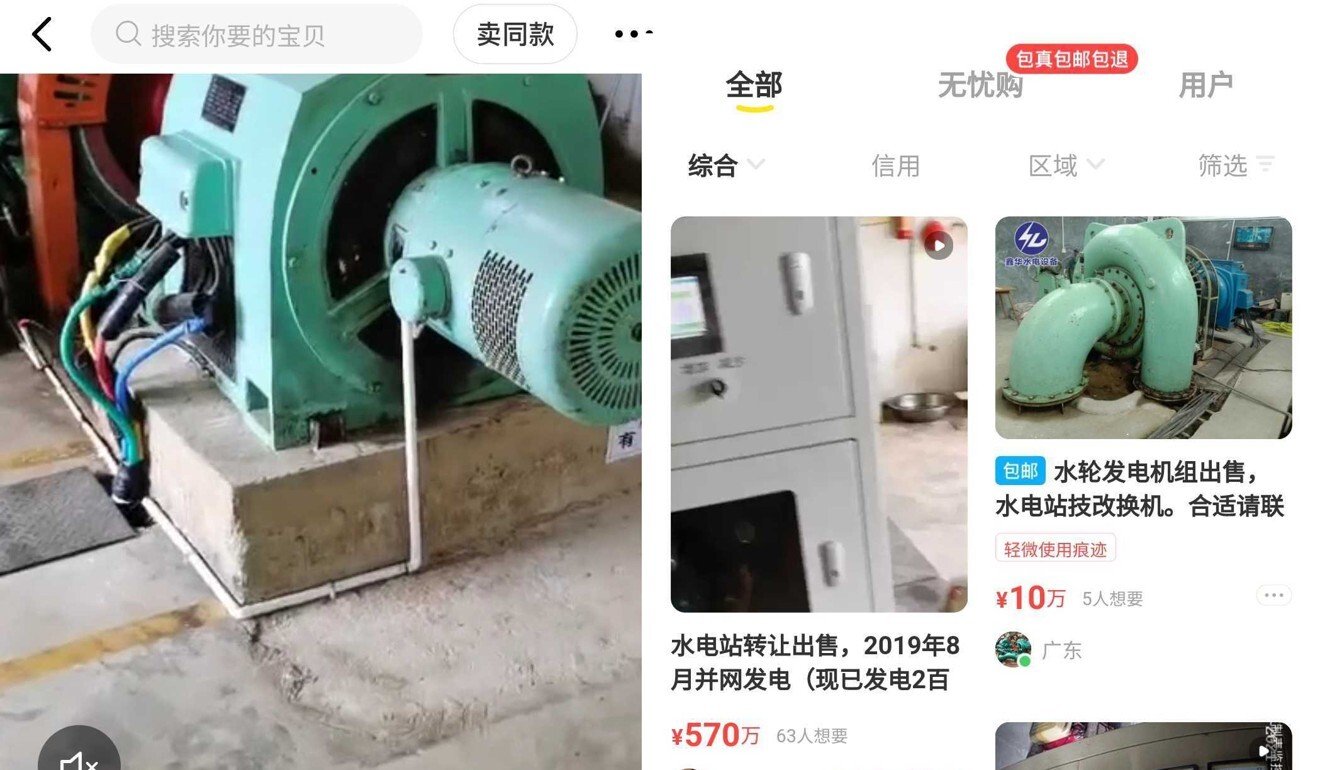
Hydropower plants go on sale in China amid mining crackdown and bitcoin slump
- After cryptocurrency mining rig sales, small hydropower stations are now for sale on e-commerce site Xianyu
- Prices of small hydropower stations have dropped amid crackdown, as bitcoin miners head for the exits in China
China’s swift and sweeping crackdown on bitcoin mining has pushed owners of small hydroelectric power plants to offload their assets now that demand for cheap power is drying up.
Some plants are in southwestern Sichuan province, an area in China with abundant water resources that can provide cheap electricity and where 26 bitcoin mining operations were ordered to shut down last week.
“You can secretly mine cryptocurrency if you buy a hydropower station,” promised one of the sellers on the Alibaba Group Holding-owned platform, when contacted by a South China Morning Post reporter. Alibaba also owns the SCMP.
Two sellers who responded to inquiries said their listings were unrelated to the recent crackdown.

Three others confirmed that more power stations are on the market because of the crackdown and one noted that prices for the hydro plants had gone down recently.
Dam nation: China crackdown spares big state hydropower projects
One seller suggested that the reason why some hydropower stations have turned to mining cryptocurrency is that they have not received permission from government authorities and environmental protection agencies to connect to the power grid.
Beijing, meanwhile, has always taken a hard line against cryptocurrencies, regarding them as volatile, speculative and potentially destabilising. After reaching nearly US$64,000 by April 2021, bitcoin dropped sharply and was trading around US$34,000 on Monday.
Chinese miners have either suspended operations entirely or are making plans to move to North America or Central Asia, impacting bitcoin mining productivity worldwide.
Bitmain Technology Holding, one of the world’s largest bitcoin mining machine makers, last week announced it would suspend global mining rig sales after second-hand hardware flooded the market.
BTCChina, which ran the first bitcoin exchange in China, said it has “completely exited from bitcoin-related businesses” in response to the Chinese government’s tougher policies, and sold its stake in Singapore-registered bitcoin exchange ZG.com last week.

